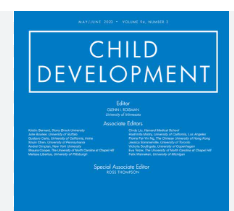Child Development Evidence-Based Paper Review, Attention deficit hyperactivity disorder (ADHD refers to the neurodevelopmental disorder associated with a pattern of persistent hyperactive, impulsive, and inattention behavior (Singh et al., 2021). The pattern has a negative impact on an individual’s development and psychosocial functioning. Specific learning disorder (SLD) is also a neurodevelopmental disorder associated with limited calculation, reading, and writing skills (Crisci et al., 2021). According to Faedda et al. (2019), SLD also has biological origins, suggesting that biological factors contribute to its development.
Child Development Evidence-Based Paper Review
In children and adolescents with ADHD and SLD, it is essential to follow evidence-based guidelines and best practices to ensure optimal care and outcomes. Evidence-based practice (EBP) integrates the highest quality research evidence with clinical expertise, patient values, and preferences to guide healthcare decision-making (Abu-Baker et al., 2021).
National clinical guidelines serve as valuable resources for healthcare practitioners to implement EBP (Shah et al., 2019). These guidelines are based on a rigorous evaluation of research evidence to provide recommendations that enhance the quality and efficacy of care given to children and adolescents. Wolraich et al. (2019) examined the American Academy of Pediatrics’ clinical practice guidelines for the assessment, identification, and treatment of ADHD in children and teenagers. Clinicians are expected to follow the updated clinical practice guidelines and best practices to deliver quality and safe care to pediatric patients with ADHD.

Child Development Evidence-Based Paper Review
Similarly, Shah et al. (2019) focused on the clinical practice guidelines that pediatric clinicians should consider to assess and manage patients with SLD. These guidelines recommended the use of evidence-based approaches for the assessment, diagnosis, and management of ADHD) and SLD in children and adolescents. This paper aims to summarize an article on a child development issue, rate and grade the evidence, and examine the application, perspective, and discussion by a psychiatric mental health nurse.
Summary of Child Development Evidence-Based Paper Review
The selected article explores the executive and intellectual capacities of children and adolescents with ADHD and SLD (Faedda et al., 2019). It highlights the importance of EBP in child and adolescent care, noting the need for a comprehensive understanding of cognitive functioning in individuals with ADHD and SLD. The purpose of the study was to investigate the distinctive cognitive profiles connected to these two disorders.
The researchers conducted a comprehensive assessment that comprised tests of intellectual ability and other executive function domains, including cognitive inhibition, working memory, and cognitive flexibility (Faedda et al., 2019). In both groups, intellectual ability was measured using the “Wechsler Intelligence Scale for Children Fourth Edition (WISC-IV)” and the cognitive executive functions were measured using the NEPSY-II tool (Faedda et al., 2019, p.441).
Summary of Child Development Evidence-Based Paper Review
The researchers conducted a study involving a sample of children and adolescents diagnosed with ADHD and SLD, with two groups of participants in a total of 72 children and adolescents were included (Faedda et al., 2019). 36 children and adolescents with ADHD were in the first group, while 36 children and teenagers with SLD were in the second group. The findings showed a clear distinction in cognitive functioning between the ADHD and SLD groups (Faedda et al., 2019).
Summary of Child Development Evidence-Based Paper Review
In terms of intellectual functioning, perceptual reasoning, verbal comprehension, and processing speed were all impaired in ADHD patients (Faedda et al., 2019). These results suggest that people with ADHD have a general intellectual deficit. The study findings also showed that children and adolescents with ADHD had deficiencies in both intellectual performance and executive functioning when compared to people who are typically developing (Faedda et al., 2019).
On the other hand, while their processing speed was mostly unaffected, participants with SLD showed specific intellectual impairments, particularly in verbal comprehension and perceptual reasoning (Faedda et al., 2019).
Child Development Evidence-Based Paper Review
SMAPLE PAPER- ORDER NOW ; Child Development Evidence-Based Paper Review





